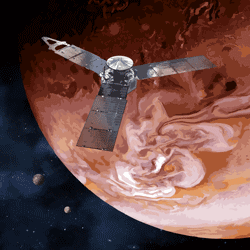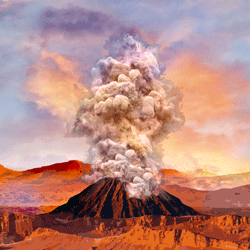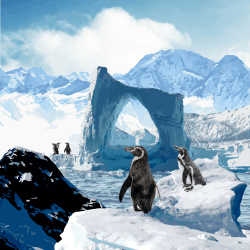Our research themes
The scientific themes that structure the laboratory beyond its teams and that make the LMD an international leading laboratory are the following:
- Atmospheric Dynamic Processes for the Earth and Planetary Atmospheres
- Continent/ocean/atmosphere interactions
- Water cycle and clouds
- Atmospheric composition, pollution and large-scale transport
- Climate variability and evolution at global and and regional scales
- Societal impacts

Atmospheric Dynamic Processes for the Earth and Planetary Atmospheres
It is the DNA of the laboratory. This theme is part of a strong thematic unit that is well described by the name of the LMD and aims to study the dynamic processes of the terrestrial and planetary atmospheres and their evolution, by combining theoretical approaches, observations and numerical modelling.

Continent/ocean/atmosphere interactions
The role of interactions and feedbacks between the atmosphere and the surface (oceanic or continental) in the dynamics of the atmosphere is studied at the LMD, relying in particular on coupled modelling at global and regional scales, in idealised or non-idealised mode. Surface/atmosphere interactions are studied in particular to better understand climate variability coupling components of the Earth system with different temporal dynamics, to quantify the role of these interactions on hydrometeorological extremes (precipitation, heat waves and droughts, tropical cyclones and extra-tropical storms). These studies are based on the LMDZ and DYNAMICO atmosphere, NEMO ocean and ORCHIDEE surface models.

Water cycle and clouds
This is a very structuring theme at the LMD and is essential for understanding the variability and evolution of the climate system. The study of the atmospheric water cycle, atmospheric convection and cloud formation at the LMD is based on multiple and combined approaches combining in-situ observations (e.g. SIRTA, measurement campaigns) and by spatial remote sensing and modelling including a hierarchy of models of various complexities.

Atmospheric composition, pollution and large-scale transport
Emissions and transport of atmospheric components (gaseous and particulate) relies on a very strong expertise at the LMD in space observation (e.g. IASI, IASI-NG) and modelling (chemistry-transport model CHIMERE). The topics addressed cover a broad spectrum: urban pollution, long-range plume transport (volcanoes, fires), global atmospheric composition (greenhouse gases, aerosols). en/modelisations/chimere-en/

Climate variability and evolution at global and and regional scales
The laboratory is a key player at the international level and within the IPSL in studies on climate variability and evolution. As a contributor and coordinator in international intercomparison exercises of climate models at global (CMLIP) and regional (CORDEX) scales, the LMD's expertise is largely based on the in-house development of climate models with, at its heart, the LMDZ and DYNAMICO, and the studies conducted at the LMD support the expertise synthesised in the assessment reports (IPCC and similar regional structures, e.g. MedECC).

Societal impacts
The expertise and tools developed at the LMD are also used to support impact studies in two sectors: health and energy. The work on health is based on the chemistry-transport model CHIMERE, and focuses on modelling and quantifying the exposure of populations to air pollution. In the energy sector, the LMD's expertise on climate predictability, variability and evolution at regional scales can be translated into terms of predictability, variability and evolution of energy production and consumption and to develop decision-making tools (forecasting with a suite of E4Cast models; integrated climate-energy modelling E4Clim for prospective needs).


